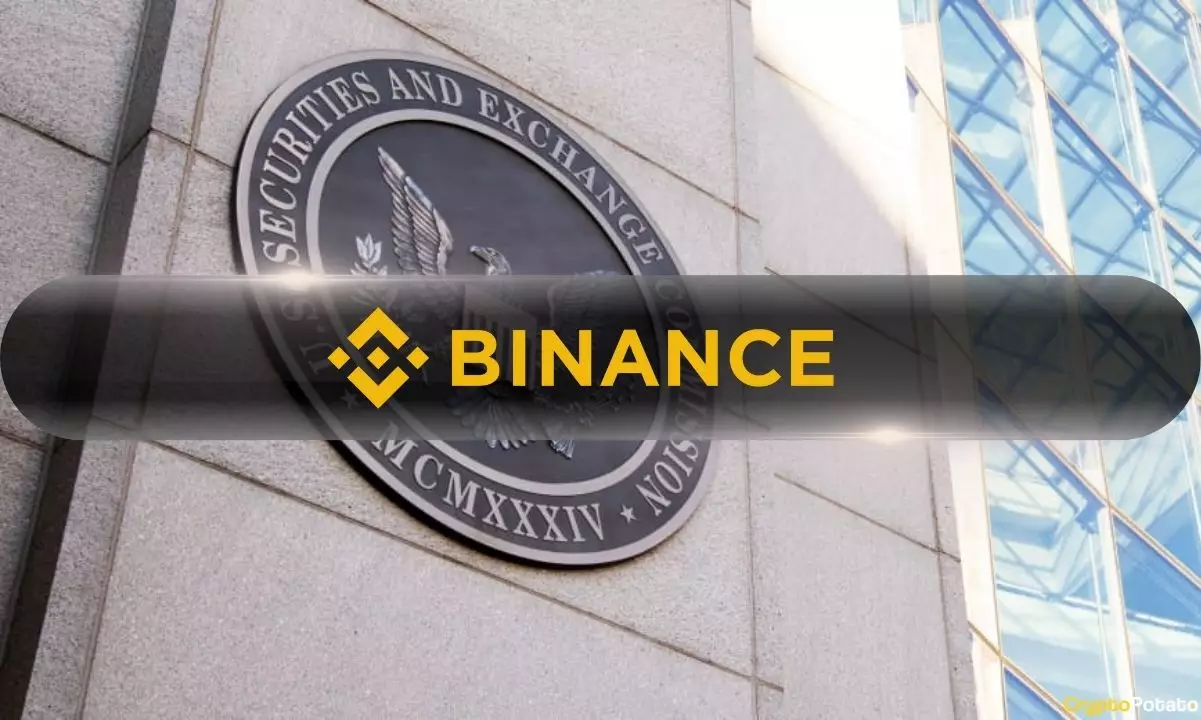In recent months, the U.S. Securities and Exchange Commission (SEC) has found itself embroiled in a significant legal confrontation with Binance, one of the largest cryptocurrency exchanges in the world. This lawsuit is not just another skirmish in the ongoing regulation of the crypto market; it represents a pivotal moment in how regulators are navigating the complex relationship between digital assets and securities law. With the SEC accusing Binance and its former CEO Changpeng Zhao of operating an unregistered securities exchange, the implications of this case extend far beyond the parties involved.
At the heart of the SEC’s argument is the assertion that Binance has been facilitating trades involving unregistered securities. Central to this claim is the “Howey Test,” a legal framework established to determine whether an asset qualifies as a security. The SEC contends that all necessary criteria of the Howey Test are met in this case: that these token transactions constituted an investment, were part of a common enterprise, and produced an expectation of profits based on the efforts of Binance. Specifically, they argue that holders of Binance’s native token, BNB, and ten other cryptocurrencies were led to believe that their financial returns were tied to the performance of Binance’s ecosystem, which inherently suggests a security-like relationship.
However, Binance’s response has been assertive—on November 4, they attempted to dismiss the SEC’s amended complaint, claiming that the regulatory body has not substantiated its allegations. This legal tug-of-war highlights the ongoing tension between cryptocurrency platforms and regulators. As digital assets evolve, the lines drawn by existing frameworks like the Howey Test face challenges in application to the innovative nature of blockchain technology.
One significant aspect of the SEC’s lawsuit tackles the complexity of secondary market transactions. The regulator refutes Binance’s stance that such trades fall outside the jurisdiction of securities law, arguing that they should also be evaluated under the purview of the Howey Test. This claim is particularly alarming to many in the crypto community, as it raises questions about the broader regulatory implications for exchanges operating within the United States, potentially subjecting numerous similar transactions to stringent oversight that could reshape the fundamental dynamics of digital trading.
Compounding regulatory scrutiny on secondary markets is the SEC’s push to categorize popular cryptocurrencies—such as Solana (SOL), Cardano (ADA), and others—as securities. This sweeping classification could imperil a large segment of the crypto industry that thrives on innovation. As more assets face these stipulations, the ripple effects could deter new projects and present a greater challenge for existing platforms trying to navigate compliance without inhibiting growth.
In the wake of this lawsuit, the SEC has faced backlash not only from Binance but also from influential voices within the cryptocurrency ecosystem. Notably, Coinbase’s legal chief, Paul Grewal, has publicly criticized what he perceives as the SEC’s inconsistent enforcement practices. By not classifying major assets like Bitcoin and Ethereum as securities, the SEC has created confusion regarding its regulatory stance, raising concerns about fairness and clarity in the application of securities laws across the board.
Furthermore, the criticism extends to SEC Chair Gary Gensler, who has been accused of acting hastily and using outdated arguments in the lawsuit’s development. Stakeholders voice their belief that Gensler’s potential departure from the SEC could alter the course of cryptocurrency regulation altogether. The anticipated appointment of new leadership is viewed by some as an opportunity for a more balanced approach to a burgeoning industry that requires careful consideration rather than blanket classifications.
As debates surrounding the SEC’s actions continue to simmer, many legal experts and crypto advocates urge a reassessment of how regulatory bodies approach emerging technologies. There is a growing recognition that the financial landscape is evolving rapidly, and rigid interpretations of existing securities law may stifle innovation rather than foster it. Calls for clearer definitions and guidelines—and an acknowledgment of the unique attributes of cryptocurrencies—are becoming increasingly prevalent.
The SEC’s lawsuit against Binance embodies not just a clash between an exchange and a regulatory authority but a broader dialogue concerning the future of cryptocurrency in the United States. It highlights the need to reconcile new financial innovations with existing legal frameworks. As all eyes remain on the unfolding developments of this case, the outcomes could redefine the regulatory environment for cryptocurrencies, shaping the landscape for years to come.
















Leave a Reply